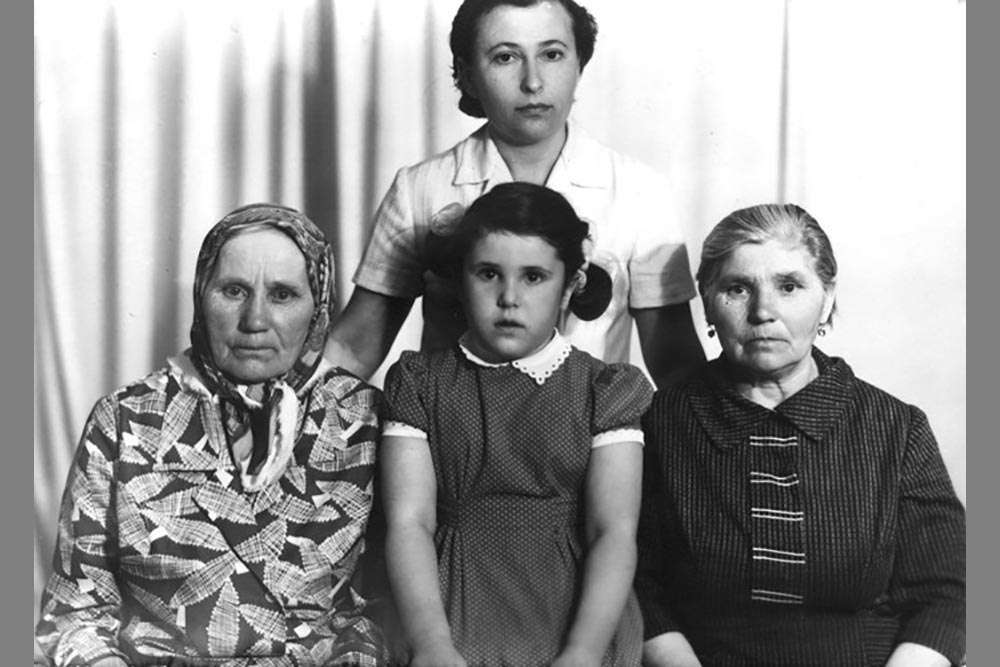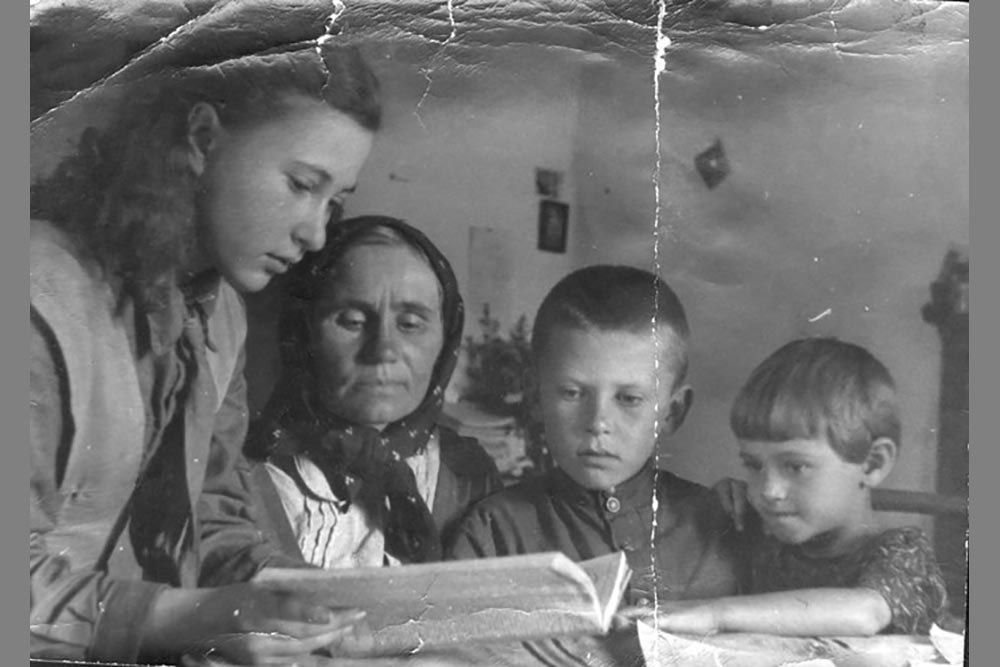Bank of Portraits / Pukas Nina

Pukas Nina
Nina Pukas settled in Proskuriv (current Khmelnytskyi) in 1937. Later, she got a job as a housekeeper for a local teacher Frima Sternik, who lived with her children: four-year-old Eldina and one-year-old Hennadii. Women made friends. In 1940, Nina gave birth to a daughter, Halia, and Frima offered her to move to their house.
In July 1941, after occupying the city, the Germans began persecuting the Jews. In addition, Frima's house was completely burned down and women with children were on the street. Nina decides to save the situation: she declares to the occupation authorities that she is the mother of three children, that all the documents have been burned and they have nowhere to live. A small room was allocated to Nina, in which she moved with the children, and Frima had to get to the apartment at night, secretly, to avoid the prying eyes.
In the fall of 1941, the Jews of the occupied city of Proskuriv began to be exterminated. It was becoming dangerous to stay in the city. Nina sent Frima to her brother in a nearby village. Unfortunately, on the way, the Jewish woman was captured and executed.
Raids in the city became more frequent. The occupiers also came to Nina, who sheltered an unknown fugitive from the ghetto in her apartment at that time. The woman miraculously managed to avoid punishment by convincing the Germans that she had no idea that she was Jewish. Moreover, the uninvited guests did not even guess that there were two Jewish children in front of them.
In March 1944, parts of the Wehrmacht were pushed out of Proskuriv. So Eldina and Hennadii were searched for by their relatives, but they flatly refused to leave Nina, calling her mother and little Halia as a sister.
In 1994, Yad Vashem recognized Nina Pukas as Righteous Among the Nations.
Svitlana Demchenko
Kyiv
National museum of the History of Ukraine in the Second World War
-
fingerprintArtefacts
-
theatersVideo
-
subjectLibrary

